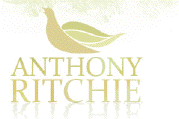

Whalesong
for solo double bass and orchestra by Anthony Ritchie Opus 128
A ten minute mini-concerto based on the song of the humpback whale.
- YEAR: 2006
- DURATION: 10 minutes
- COMMISSIONED BY: NZSO
- INSTRUMENTATION: 2,2,1,1bc,l,2bs / 2 2 0 0/ 1 perc /strings(maximum 10, 8, 6, 5, 3)
- LEVEL: 4 | Challenging for professional musicians
Programme Note
Whalesong was commissioned by The New Zealand Symphony Orchestra and composed for soloist, Dale Gold. It was written for inclusion in the orchestra's 2007 subscription series.
Duration: 10 minutes approximately
Dedicated to Dale Gold
Whales have long been one of my favourite mammals, and I have always felt greatly aggrieved when I hear of the slaughter of these huge and gentle creatures. One of the most heart-warming sights I know of is seeing a community of people trying to save beached whales, a sight that is not uncommon around our coastline. For most New Zealanders, the idea of hunting whales is now abhorrent and worthy of protest at an international level. This piece, entitled Whalesong, is my small contribution to that on-going protest.
The piece takes its inspiration from a marvellous and famous recording of a humpback whale, made by Frank Watlington of Columbia University Geophysical Field Station, and first released by Roger Payne in 1970. Some phrases from this song have been incorporated into the music, such as the opening rise of a third. The many sliding phrases in the piece owe a debt to the whale's singing, as do some low rumbling effects on the double bass. The echoing sound world of the underwater is also evoked in the music. Ideas from the whale's song are subjected to compositional processes, in order to create a coherent piece of human music, something the composer has already grappled with in his work for flute, entitled Tui (2004).
Whalesong also has a programmatic component to it. Its peaceful song is cruelly interrupted by a harpoon, and the whale is slowly hauled in (signified by the mechanical rhythms in the final section of the piece).
I would like to express my gratitude to Dale Gold for his assistance and advice in writing this piece
Performers Note
The solo double bass is to be tuned E-B-E-A (from lowest to highest string). The bass should be amplified to achieve a good sound balance. All the bass part is sounding an octave lower than written, including harmonics.
The other double basses in the orchestra also sound an octave lower than written. One bass must have a low C.
The percussionist is to improvise patterns on the bass drum when playing with the super ball (letters A-D). The sound should ebb and flow, and there should be occasional silences. The gestures should be slow and reflective. Dynamics can fluctuate but should never be too loud for the solo bass.
The timing of the 'seagull' effect in bars 17-40 (solo bass and 1st violins) can have some freedom. However, the conductor must maintain a strict tempo throughout (aside from pause bars).
The rhythm of the tapped pizzicato in bars 20-44 (2nd violins) is free. It is to be played as quickly as possible, but the violins should not be synchronized. Each progression is achieved through a slow glissando and with approximate timing. However, the players should aim to arrive at the beginning of each bar together, if possible.
If possible, the loud rim shot on the side drum at letter H should not be telegraphed by the conductor. It is intended to surprise. Slap pizz. and 'snap' pizz. should be strongly percussive.
Buy the right to download the score as a pdf, online, and permission to duplicate or print it as required for one orchestra : NZ$29.00
Buy the right to download the parts, includng the solo double bass part, in one pdf file, online, and permission to duplicate or print it as required for one orchestra : NZ$50.00
|
Orders are saved in a secure Paypal shopping cart which is viewed on a separate browser tab. When you have finished shopping, simply Check Out for a Secure Guest check out using your credit card, or to use an existing Paypal account choose Paypal Check Out. Orders are processed every 5 minutes. An email with a link to each file should arrive within 6 minutes of checking out. If it does not arrive we will likely notice during a New Zealand working day but please send an email to bellbirdpublications at gmail dot com if you have any problems with ordering. |